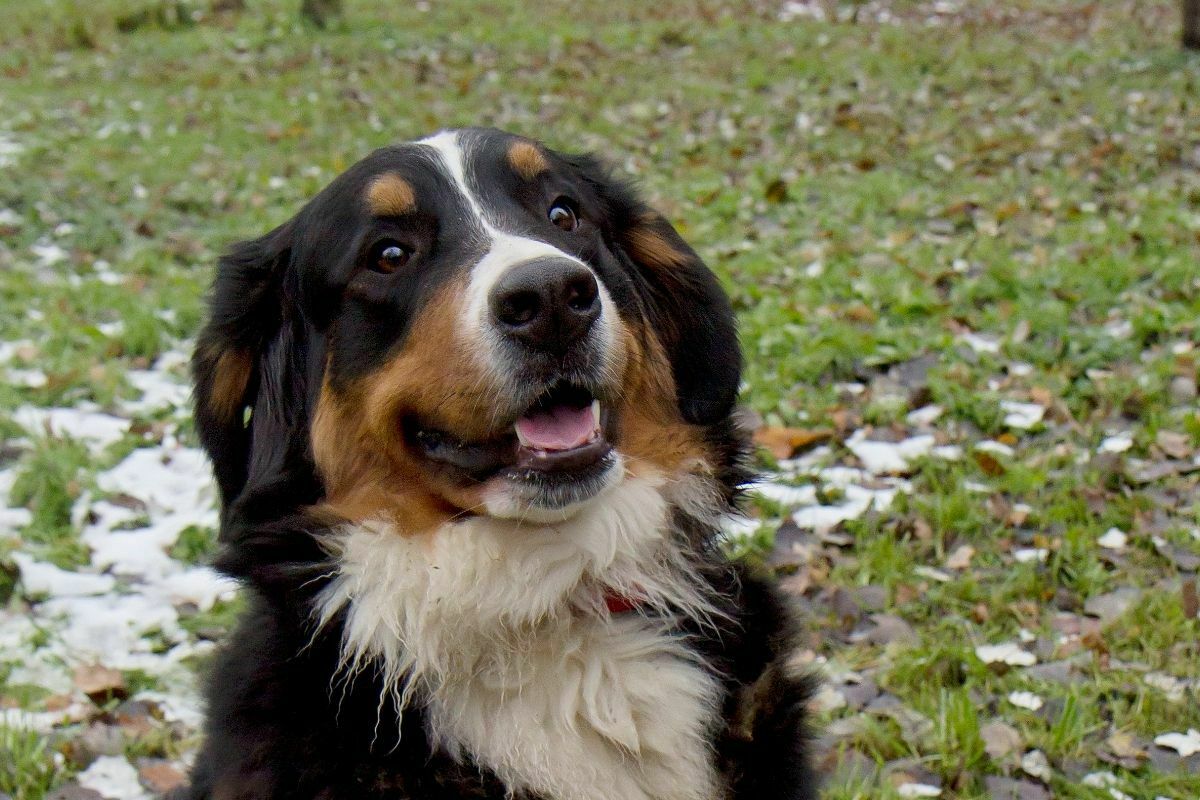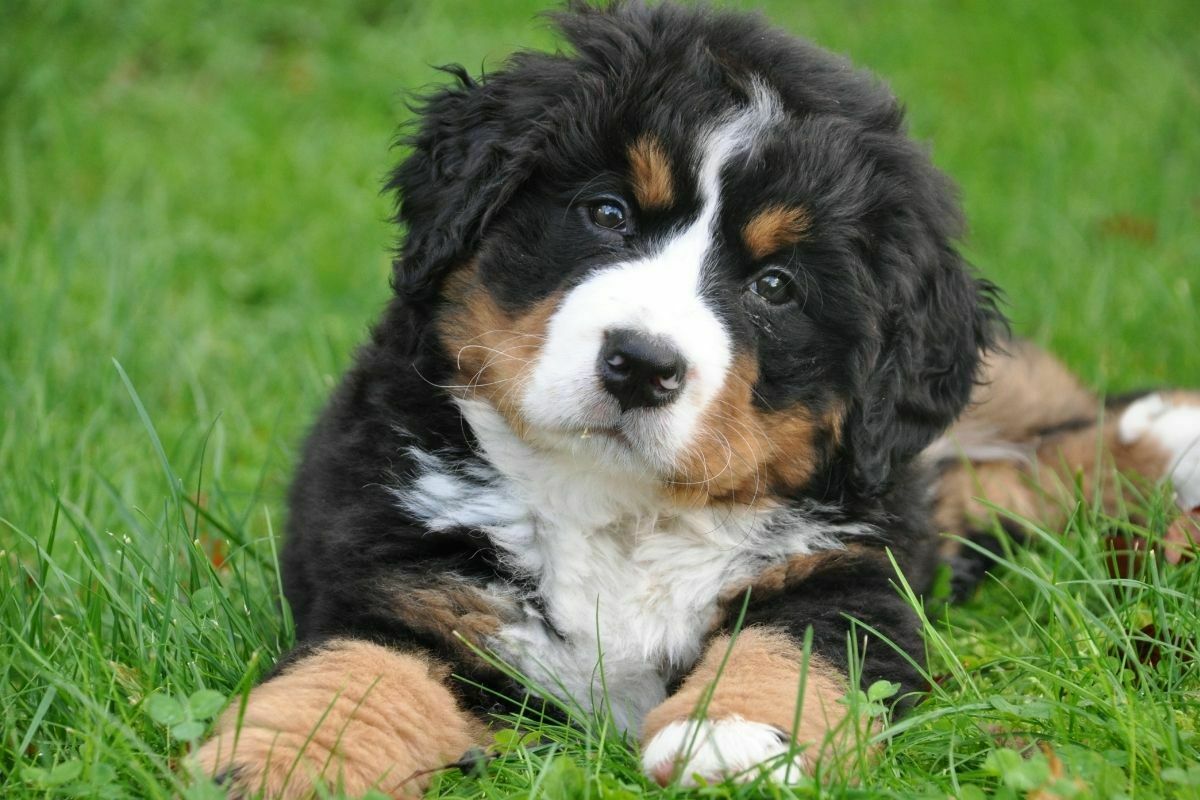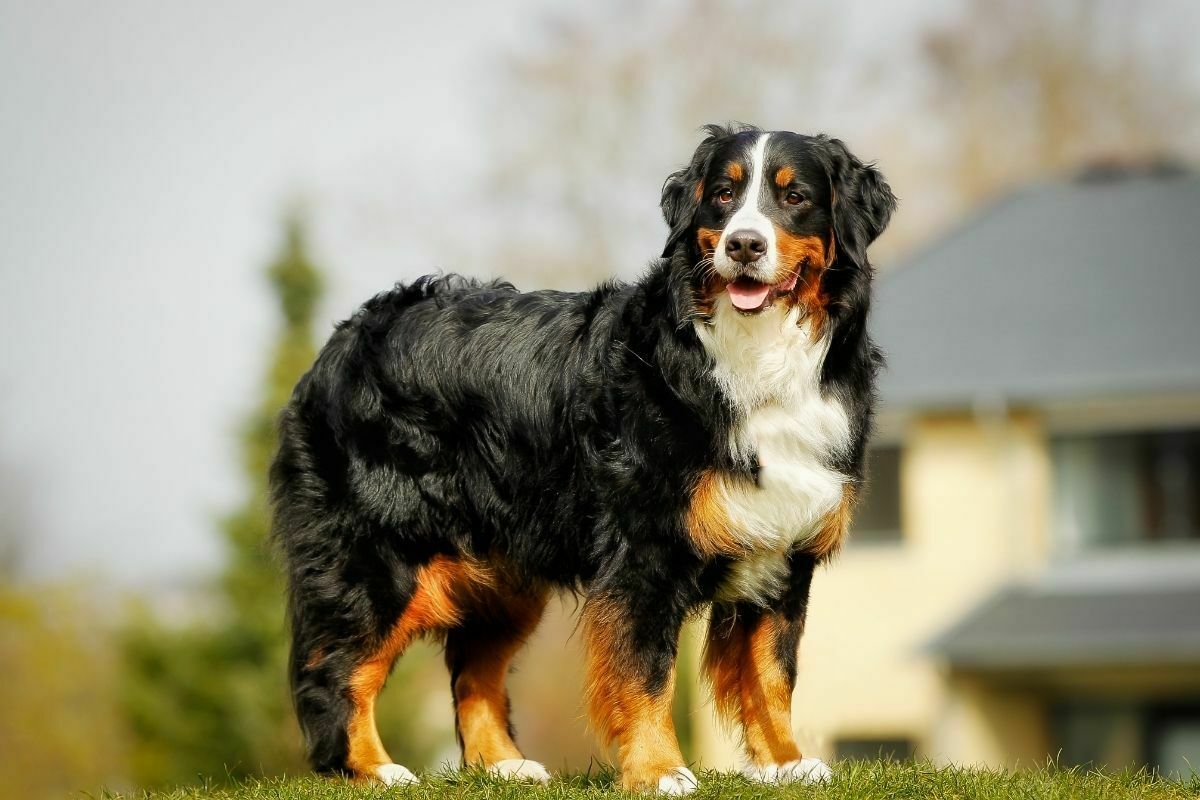Known for their friendly, kind temperaments and loyal to a fault nature, Bernese Mountain Dogs are one of the most popular choices for the household and are known to be one of the best family dogs in the world.

But, besides being classed as being an ideal addition to any household, are Bernese Mountain Dogs Hypoallergenic? If you’re currently asking yourself this question and are prone to allergies, then rest assured that you have come to the right place.
In this article, we will cover whether Bernese Mountain Dogs are hypoallergenic, as well as some tips and tricks for helping to reduce the chances of you being triggered by the dander in their fur. Read on!
What Is The Bernese Mountain Dog?

Kicking this article off, we’re first going to be taking a moment to provide you with some more context about this dog, as it will help you decide better whether a Bernese dog is right for you.
The name “Bermuda” comes from the island nation in the Caribbean Sea where this breed originated. The first dog to be registered with the American Kennel Club was a black and tan male named Bermuda, who was imported from England by Mr. John C. Bennett, Jr., in 1884.
This dog then became the foundation and breed standard for what would become the modern-day BMD.
In the following years, the Bernese Mountain Dog went on to be further developed by Englishmen as a hunting companion. These men were hunters who needed a working partner to help them track down various small animals.
Originally, these dogs were used for hunting foxes, but eventually, they were bred to hunt larger animals such as deer, boar, bear, and even wolves.
In the late 19th century, the BMD was brought to America and began being used as a pet. The BMD has a short coat that is very dense and thick. The color ranges from fawn or white to red or brindle. Most Bernese Mountain Dogs have some amount of black on their coats.
Their eyes are dark brown or hazel. The ears are small and rounded. The BMD stands between 25-30 inches tall at the withers, and they typically weigh anywhere between 50-80 pounds, depending on their gender and lifestyle factors.
What Are Hypoallergenic Dogs?
In a nutshell, a hypoallergenic dog essentially refers to a dog that is going to be less likely to cause you (or another member of the household sensitive to allergic reactions) to be triggered when exposed to them, as opposed to other dogs. Here are some of the key characteristics of a hypoallergenic dog:
- Hypoallergenic dogs tend to shed less than most other breeds.
- They don’t require as much grooming as many other breeds.
- Their fur tends to be softer and more manageable.
- They are generally smaller in size.
Allergies can cause your body to release histamines and other chemicals into your bloodstream. Once this is done, these histamines cause inflammation throughout your body, making you feel sick.
Some people, including our furry friends, may experience an allergic reaction immediately after coming into contact with something that triggers an allergy.
Unfortunately, if you are prone to allergic reactions, then dogs can quite often be a trigger, especially if you suffer from eczema or asthma.
With that being said, if you want to introduce a four-legged friend into your home and your or another member of the household is sensitive to the allergens released by dogs – then it’s a good idea to make sure that you are opting for a hypoallergenic dog. This brings us to our next point.
Are Bernese Mountain Dogs Hypoallergenic?

While it should go without saying that no dog can be 100% hypoallergenic, it is worth keeping in mind that Bernese mountain dogs are not generally considered hypoallergenic – and this comes down to two main reasons.
The first major reason that Bernese Mountain Dogs are not considered to be hypoallergenic is that they shed a lot of hair.
For this reason, this means that they are known to be a breed of dog that sheds quite a lot of hair (especially around the home), which means that they might not be suitable for those who are highly sensitive towards animals.
When Bernese Mountain Dogs shed their fur, a compound known as dander is released, which is the main trigger of allergies in humans.
Another reason Bernese Mountain Dogs are not considered hypoallergenic comes down to their dandruff and saliva.
As we have already mentioned above, no dogs are 100% hypoallergenic, as even if they do not shed their coats, they can also release allergens via their dandruff and saliva – and this goes for Bernese Mountain Dogs, too.
For this reason, if you (or someone in your home) is allergic to the dander that dogs release, you might want to consider opting for a more hypoallergenic dog.
The Bottom Line
To sum up, we discussed above that Bernese Mountain Dogs are not considered hypoallergenic because they release dander from the fur they shed.
So, with that being said, if you are at a higher risk of having an allergic reaction from the allergens that dogs release – you might find that a Bernese Mountain Dog is not the right option for you.
In contrast, if you want to ensure that both you and your family members are at a lower risk of having an allergic reaction when exposed to your dog, then you need to ideally opt for a dog that is classed as being hypoallergenic.
Thank you for reading. We hope that this guide has been a help!
